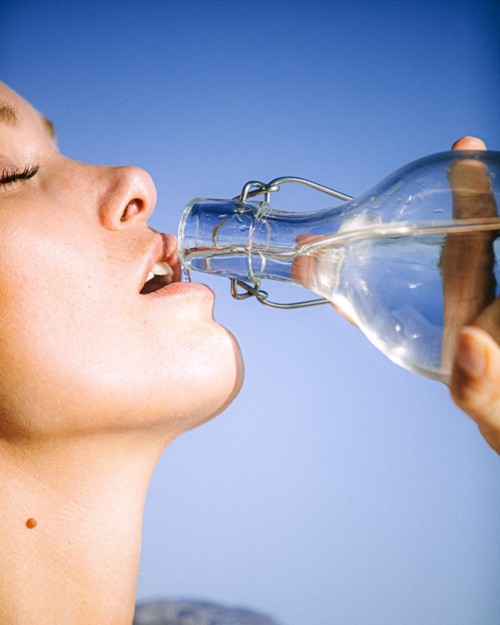Several chemicals in the bloodstream regulate important functions of the body and these chemicals are called electrolytes. Electrolyte imbalance, or electrolyte imbalance, causes serious, life-threatening health problems. Electrolytes play an essential role in maintaining the perfect balance of all body and body functions, such as the heart and nerves, fluid and oxygen balance, acid balance, etc.

Thus, nerve reactions in the body and muscle function depend on the correct exchange of these electrolytes outside and within cells, so an electrolyte imbalance can cause a variety of symptoms.
Among the most important sources of electrolyte:
- Calcium
- Chloride
- Potassium
- magnesium
- Sodium
What are the causes of electrolyte imbalance in the body?
There are many reasons for an electrolyte imbalance, and they may include the following:
- Loss of body fluids from prolonged vomiting, diarrhea, sweating, or a high temperature.
- A poor diet and lack of vitamins from food.
- Inability of the body to absorb electrolytes due to stomach disorders, certain medications, or the way food is eaten.
- Hormonal or endocrine disorders.
- Kidney disease.
- Chemotherapy complications.
- Medicines such as chemotherapy drugs, diuretics, or antibiotics.

What are the symptoms of electrolyte imbalance?
As shown, an electrolyte imbalance may lead to a number of symptoms. Symptoms of an electrolyte imbalance depend on the electrolyte levels affected.
If the blood test results indicate a change in your potassium, magnesium, sodium, or calcium levels, you may experience muscle spasm, weakness, twitching, or cramps.
Blood test results that show low or high levels may lead to:
- Arrhythmia
- Confusion
- Imbalance of blood pressure levels
- Nervous system disorders
- Weakness
- Muscle twitching
- Numbness
- Exhaustion
- Arrhythmia
- Changes in blood pressure
What is the treatment for electrolyte imbalance?
The doctor should identify and treat the underlying problem causing an electrolyte imbalance. Minor electrolyte imbalances can be corrected by changing the approved diet and replacing it with a potassium-rich diet if you have low potassium levels.
Thus, treatment varies depending on the type of electrolyte disorder and the underlying condition causing it. In general, certain treatments are used to restore the proper balance of minerals in the body. These include:
Intravenous (IV) fluids
Intravenous (IV) fluids can help rehydrate the body. This treatment is most commonly used in cases of dehydration caused by vomiting or diarrhea. Electrolyte supplements can be added to intravenous fluids to correct a deficiency.
Intravenous medications
Intravenous medications can help your body quickly restore electrolyte balance and protect you from negative effects while otherwise treated. The medication will depend on the electrolyte disorder you have. Medicines that may be taken include calcium gluconate, magnesium chloride, and potassium chloride.
Medicines and supplements
Oral medications and supplements are often used to correct a chronic mineral imbalance in your body, especially for people with chronic kidney disease. Medication depends on the type of electrolyte disorder and includes the following:
- Calcium
- Magnesium oxide
- Potassium chloride
- Phosphates
Dialysis
Dialysis helps remove waste products from the blood and filter and purify the blood. Hemodialysis may be used when an electrolyte disorder is caused by sudden kidney damage and other treatments do not work. Your doctor may also decide to treat dialysis if the electrolyte problem becomes life-threatening.




![The Top & Most Popular Seafood Bucket Restaurants in Dubai for you [Never Miss]](https://uae24x7.com/wp-content/uploads/2020/09/8-seafood-in-a-bucket-scaled-e1600739237403.jpg)
![Procedures for Renewing the Driving License in Abu Dhabi [3 Simple Steps]](https://uae24x7.com/wp-content/uploads/2020/07/Capture-9-e1595666454466.jpg)





